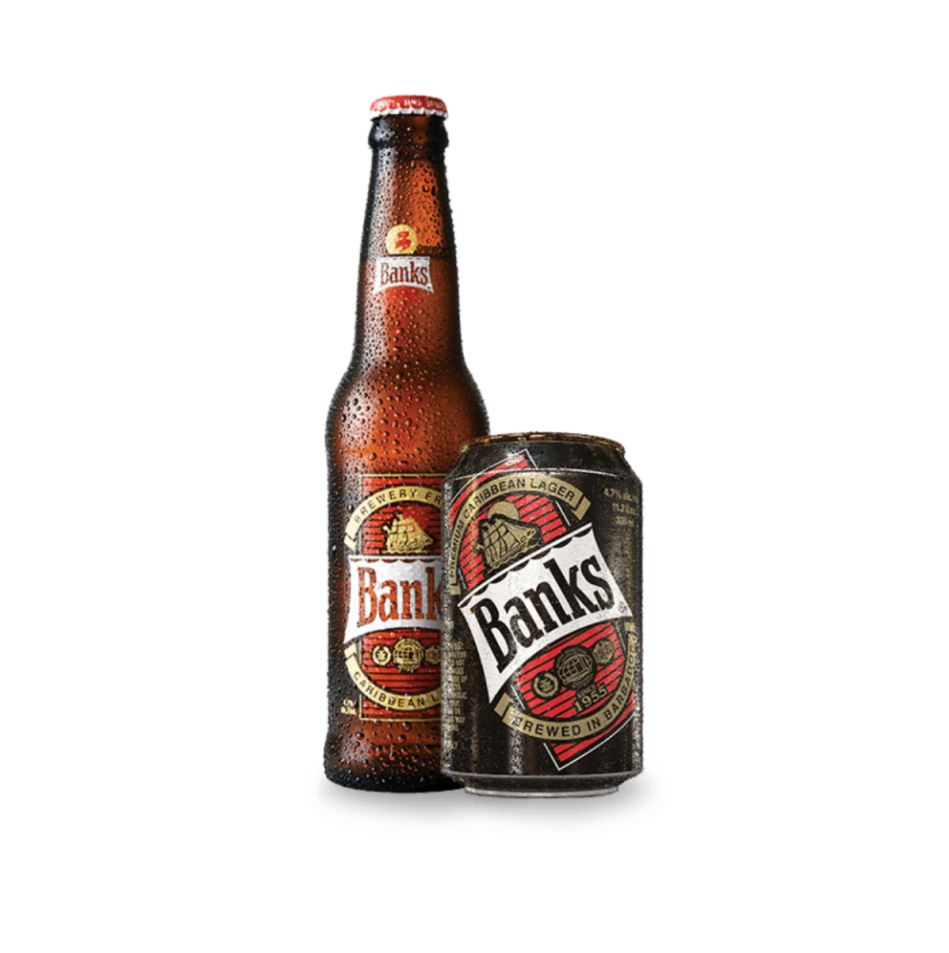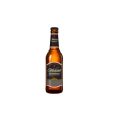Banks (Barbados) Breweries Ltd., widely recognized for its signature Banks Beer, stands as a cornerstone of the Caribbean brewing industry. Founded in 1961 in the bustling parish of St. Michael, Barbados, this iconic brewery has grown from a local enterprise into a significant player within the regional and international beverage markets. The establishment of Banks Beer was initially propelled by the vision of Peter D’Aguiar, a Guyanese entrepreneur who recognized the potential of a domestic brewery in Barbados. His foresight was supported by favorable tax concessions from the Barbadian government, aimed at fostering local industries during that era.
As a foundational component of the Banks Holdings Limited group, Banks Brewery has not only contributed to the local economy through job creation and revenue but has also played a pivotal role in defining the taste preferences of beer enthusiasts in the Caribbean. The brewery was strategically set up in Wildey, just two miles west of Bridgetown, positioning it perfectly to leverage both local and export markets.
Banks Beer quickly became synonymous with Barbadian craftsmanship and pride. The brewery initially focused on producing its flagship lager, which captured the essence of the island’s vibrant culture and festive spirit. Over the years, the product line expanded to include other beverages like Milk Stout and Tiger Malt, diversifying its portfolio to cater to a broader audience.
The journey of Banks Beer has been marked by innovation and adaptation, navigating through changes in economic policies and expanding its market reach beyond the Caribbean shores. Today, Banks Beer is not only a beloved brand in Barbados but also a respected name in international markets, available in countries such as the United States, Canada, and parts of Europe. This growth reflects the brand’s enduring appeal and its ability to resonate with consumers across different cultures, making Banks Beer a true ambassador of Barbadian brewing excellence.
| Aspect | Details |
|---|---|
| Foundation and Origin | Founded in 1961 in St. Michael, Barbados by Peter D’Aguiar. Supported by tax concessions from the Barbadian government to foster local industries. |
| Location and Strategic Importance | Located in Wildey, two miles west of Bridgetown, strategically positioned to access both local and export markets. |
| Product Line and Expansion | Initially focused on its flagship lager, Banks Beer. Over time, expanded to include Milk Stout and Tiger Malt, diversifying its offerings. |
| Market Reach and International Presence | Banks Beer has expanded beyond the Caribbean to international markets, including the United States, Canada, and parts of Europe. |
| Impact and Significance | Significant player in the Caribbean brewing industry, contributing to the local economy through job creation and revenue, and defining regional taste preferences. |
Contents
History and Foundation
The story of Banks Beer begins with the entrepreneurial vision of Peter D’Aguiar, a Guyanese businessman who saw potential in creating a local brewery in Barbados. During the late 1950s, the Barbados government, eager to bolster local production and reduce import dependency, offered significant tax concessions to incentivize the establishment of such an enterprise. This governmental support was crucial, providing a fertile ground for the brewery’s inception.

Financing for this ambitious project was sourced through a blend of local and international investments. Banks Diversified Industrial Holdings (DIH) of Guyana, led by D’Aguiar, provided 30% of the necessary capital, showcasing a strong regional collaboration. The remainder of the funds was raised by offering shares to the Barbadian public, ensuring that the venture had robust local backing and vested interest from the community.
Construction of the brewery took place in Wildey, a strategic location just two miles west of Bridgetown, the capital of Barbados. This site was chosen for its logistical advantages, facilitating easy distribution both domestically and overseas. On September 7, 1961, Banks (Barbados) Breweries officially commenced operations, marking a significant milestone in the Caribbean brewing industry.
| Aspect | Details |
|---|---|
| Entrepreneurial Vision | Peter D’Aguiar, a Guyanese businessman, initiated the creation of a local brewery in Barbados, supported by the Barbados government’s tax concessions to stimulate local production. |
| Financing | Financed through a blend of local and international investments. Banks DIH of Guyana contributed 30% of the capital, with the remainder raised by offering shares to the Barbadian public. |
| Construction and Location | Constructed in Wildey, strategically located two miles west of Bridgetown, chosen for its logistical advantages in distribution both domestically and overseas. |
| Official Launch | Operations commenced on September 7, 1961, marking a significant milestone in the Caribbean brewing industry. |
Product Expansion and Market Challenges
Initially, Banks Brewery focused on producing its flagship product, Banks Beer, which quickly became a favorite among locals and tourists alike. By 1963, the company expanded its product line to include Milk Stout and Tiger brand Malt. These additions helped diversify the brewery’s offerings and cater to a wider range of taste preferences.
However, the company soon faced financial and operational challenges when the Barbados government withdrew the initial tax concessions. This policy shift was driven by the government’s realization that these concessions were significantly reducing potential revenue. The withdrawal required Banks Brewery to adjust its business strategy rapidly to maintain profitability.
Another significant hurdle was the naming rights issue with Banks DIH. Initially, Banks (Barbados) Breweries could not export its products under the ‘Banks’ name outside select Caribbean islands due to rights held by the Guyanese entity. This restriction was a major impediment to the company’s expansion goals. It wasn’t until 1973 that Banks (Barbados) was able to secure the rights to use the Banks name across the entire anglophone Caribbean, which significantly bolstered its export capabilities.
The early 1970s also saw Banks Beer beginning to earn international acclaim. The brand made a strategic move by entering into a licensing agreement in the United Kingdom with King & Barnes of Horsham, Sussex. This partnership allowed Banks Beer to be brewed under the name “Bajan” in a very similar bottle style and decoration as it was in Barbados, thus maintaining brand consistency. This move not only widened the brewery’s market reach but also enhanced its international profile, culminating in Banks Beer receiving its first International Award from the Lager Beer Competition in England in 1971.

The resolution of these early challenges set the stage for Banks (Barbados) Breweries to solidify its presence both in local and international markets, navigating through regulatory, financial, and operational hurdles to establish itself as a leading name in Caribbean brewing.
| Challenge/Strategic Move | Details |
|---|---|
| Product Line Expansion | By 1963, expanded to include Milk Stout and Tiger brand Malt to diversify offerings and cater to a broader range of tastes. |
| Tax Concession Withdrawal | Faced financial challenges when the Barbados government withdrew initial tax concessions, requiring a rapid adjustment in business strategy. |
| Naming Rights Issue | Initially restricted from exporting under the ‘Banks’ name due to rights held by Banks DIH; secured rights in 1973, enhancing export capabilities. |
| International Expansion | Entered a licensing agreement in the UK with King & Barnes of Horsham, Sussex, to brew Banks Beer under the name “Bajan”, maintaining brand consistency and expanding market reach. |
| Recognition and Awards | Received its first International Award from the Lager Beer Competition in England in 1971, bolstering its international profile. |
Corporate Growth and Acquisitions
The growth trajectory of Banks (Barbados) Breweries Ltd. took a significant turn with its strategic acquisitions and partnerships, which expanded its portfolio and market presence. A pivotal moment in its expansion was the acquisition of the Barbados Bottling Company (BBC), a move that not only diversified Banks’ beverage offerings but also solidified its position in the local market. This acquisition allowed Banks to integrate BBC’s operations, which included the local production and distribution of soft drinks and other non-alcoholic beverages.
In tandem with acquiring BBC, Banks established B&B Distribution. This new arm was created to enhance the efficiency of its distribution network, ensuring that both alcoholic and non-alcoholic products reached a wider market more effectively. The formation of B&B Distribution represented a strategic alignment of logistics and marketing efforts, which significantly boosted the company’s operational capacity.

Further diversifying its business, Banks Holdings Limited ventured into the dairy and juice drink markets through its acquisition of Pine Hill Dairy. This move was not merely an expansion of product lines but also an entry into entirely different sectors of the food and beverage industry. Pine Hill Dairy was already a well-established name in Barbados, known for its high-quality dairy products and fruit juices. Integrating this business into the Banks portfolio not only diversified Banks’ offerings but also leveraged existing distribution channels to maximize product reach.
In 2005, Banks forged a strategic partnership with Banks Diversified Industrial Holdings (DIH) of Guyana, aimed at harnessing synergies to expand export opportunities, particularly focusing on the U.S. market. This partnership was intended to unify the branding and marketing efforts under a single umbrella, making it easier to promote Banks Beer and its other products on a global scale.
| Strategic Move | Details | Impact |
|---|---|---|
| Acquisition of Barbados Bottling Company (BBC) | Acquired to diversify beverage offerings beyond alcoholic drinks to include soft drinks and other non-alcoholic beverages. | Strengthened local market position and integrated BBC’s production and distribution operations with Banks’ existing framework. |
| Establishment of B&B Distribution | Formed to enhance the efficiency of distribution networks for Banks’ expanded product range, including alcoholic and non-alcoholic beverages. | Boosted operational capacity and market reach, aligning logistics and marketing efforts more effectively. |
| Acquisition of Pine Hill Dairy | Ventured into dairy and juice drink markets by acquiring a well-established local company known for high-quality products. | Diversified Banks’ product lines and utilized existing distribution channels to maximize reach and efficiency. |
| Partnership with Banks DIH of Guyana (2005) | Strategic partnership aimed at expanding export opportunities, especially focusing on the U.S. market. | Unified branding and marketing efforts under one umbrella, facilitating global promotion of Banks Beer and related products. |
Modern Developments and Ownership Changes
The evolution of Banks (Barbados) Breweries continued with significant infrastructure developments. One of the most notable was the construction of a new state-of-the-art brewery adjacent to the existing facilities of the Barbados Bottling Company at Newton Terrace. This new brewery was designed to enhance production capabilities and incorporate advanced brewing technologies, which improved the overall quality and efficiency of the brewing process. The strategic location facilitated seamless integration with the existing distribution network, optimizing both production and logistics.
The modern era also brought changes in ownership that shaped the company’s strategic direction. In 2015, Banks (Barbados) Breweries became the target of a competitive acquisition battle between Ansa McAl, a major conglomerate known for brewing Carib beers in Trinidad, and AmBev, the South American subsidiary of InBev, the world’s largest brewer. After a closely contested bidding process, AmBev emerged victorious, acquiring Banks Brewery. This change in ownership marked a new chapter for Banks, as it became part of a global brewing empire. The acquisition by AmBev was seen as a strategic move that could leverage Banks’ strong regional presence and integrate it into a global distribution network, potentially increasing the international availability of Banks beers and other beverages.
The transitions in ownership and the expansions through acquisitions and strategic partnerships have significantly shaped the trajectory of Banks (Barbados) Breweries. Each phase of corporate growth and acquisition not only expanded the company’s portfolio but also strategically positioned it for greater market penetration both locally and internationally. As Banks continues to evolve under its new ownership, it remains a pivotal player in the Caribbean brewing scene, with an eye towards capturing a more significant share of the global market.
| Development/Event | Description | Impact |
|---|---|---|
| Construction of a New Brewery | A new state-of-the-art brewery was built adjacent to the existing facilities at Newton Terrace to enhance production capabilities and incorporate advanced brewing technologies. | Improved the quality and efficiency of the brewing process, optimized production and logistics, and facilitated integration with the existing distribution network. |
| 2015 Acquisition Battle | Banks became the target of a competitive acquisition battle between Ansa McAl and AmBev. AmBev, part of InBev, the world’s largest brewer, ultimately acquired Banks. | The acquisition by AmBev marked a new chapter, positioning Banks to leverage its regional strength within a global distribution network, increasing international availability of its products. |
| Strategic Growth and Expansion | Continued expansions through acquisitions and strategic partnerships have been key to Banks’ growth. | Expanded the company’s product portfolio and market presence, strategically positioning it for greater local and international market penetration. |
Availability and Global Reach
Banks (Barbados) Breweries Ltd. has effectively expanded its reach from a local Barbadian favorite to a respected brand in the global beer market. In its home country of Barbados, Banks beers remain a staple, beloved by both residents and tourists alike for their distinct flavor and quality. The brewery’s flagship product, Banks Beer, is synonymous with the island’s culture, often featured at festivals, restaurants, and local gatherings, epitomizing the festive spirit of the Caribbean.

Beyond the sandy beaches of Barbados, Banks Beer has established a robust presence across the Caribbean. It is widely available in several islands, where it competes with other regional beers but maintains a unique appeal thanks to its rich history and Barbadian roots. The brand’s expansion into these markets reflects its commitment to broadening its footprint in areas with similar cultural backgrounds and taste preferences.
Internationally, Banks Beer has successfully penetrated more distant markets, including the United States, Canada, Sweden, and the United Kingdom. Each of these countries represents a strategic choice based on their open acceptance of imported beers and a growing interest in Caribbean culture. In the United States and Canada, the diaspora communities serve as a crucial market, while in Sweden and the United Kingdom, the brand appeals to consumers seeking diverse and exotic beer options. According to the latest data from 2012, the brand’s presence in the United Kingdom has been well-received, with consistent sales growth demonstrating the international appeal of this Caribbean lager.
| Market | Description | Significance |
|---|---|---|
| Barbados (Home Market) | Banks Beer is a staple, deeply integrated into the island’s culture and commonly featured at festivals, restaurants, and local gatherings. | Epitomizes the festive spirit of the Caribbean and maintains strong brand loyalty among locals and tourists. |
| Caribbean Region | Widely available across several islands, competing with other regional beers while maintaining its distinct appeal due to its Barbadian roots. | Reflects the brewery’s commitment to expanding its footprint in culturally similar markets. |
| International Markets (USA, Canada, Sweden, UK) | Strategically targeted based on their acceptance of imported beers and interest in Caribbean culture. Diaspora communities are key in the US and Canada. | Facilitates global recognition and appeal, with consistent sales growth in the UK indicating strong international market penetration. |
Reflecting on the journey of Banks (Barbados) Breweries Ltd., it is evident that the brewery has not only been a pioneer in beer production in Barbados but also a significant contributor to the Caribbean brewing industry. Since its inception in 1961, Banks has navigated various challenges—from local economic shifts to global expansion hurdles—and emerged stronger with each passing decade.
The brewery’s ability to adapt and grow, from expanding its product line to entering international markets, showcases a resilience and strategic savvy that is commendable. The acquisition by AmBev and subsequent investments in modernizing the brewery have further positioned Banks Beer to compete on a global stage while retaining its cherished local identity.
Culturally, Banks Beer has had a profound impact on the Caribbean and particularly Barbadian society. It has become more than just a beverage; it is a part of the island’s social fabric, often associated with celebration and camaraderie. The brand has been a consistent supporter of local events and festivals, reinforcing its role as an integral component of Barbadian heritage.
Looking ahead, the legacy of Banks (Barbados) Breweries is secure as it continues to blend tradition with innovation. The ongoing commitment to quality and the strategic vision for future growth will likely ensure that Banks Beer remains a beloved icon in Barbados and continues to win over consumers around the world. The story of Banks is one of triumph over adversity, innovation in the face of competition, and steadfast loyalty to its roots, serving as a model for other businesses in the region and beyond. As Banks Beer moves forward, it carries with it the spirit of Barbados, a testament to its history and a beacon for its future ambitions in the global brewing industry.




